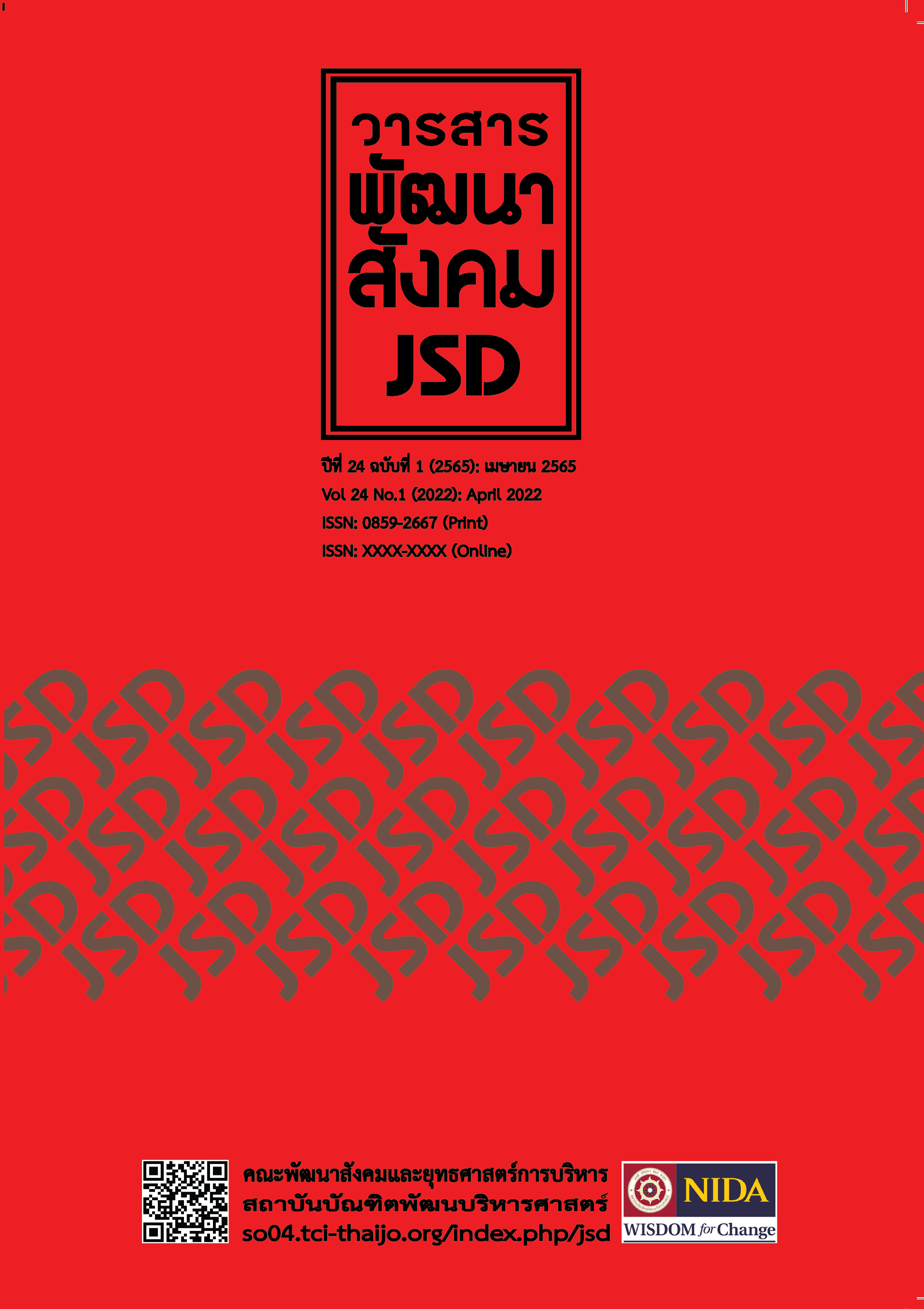Toward the Ageing Society: Social Innovation and Network Reinforcement for Potential Development of Elders in the Thai Society
Main Article Content
Abstract
This research has its purposes 1) to investigate the patterns of the potential development network of elders in the Thai society, and 2) to examine and expand the knowledge and social innovation to advance the potential development of elders in the Thai society. The methodologies employed were document analysis, in-dept interviews, observations, and focus group discussions. Thirty informants were recruited, as well as content and thematic analyses were conducted.
The findings revealed three patterns of potential development of elders in the Thai society: 1) the potential development network by the Buddhist organizations, 2) the potential development network by the local government organizations, and 3) the potential development network by the government. All the three forms were differentiated by the network reinforcing the potential development. In addition, the social innovation expressed two forms of the elderly development: 1) network social innovation and 2) knowledge social innovation regarding the holistic health, basic rights in daily life, together with the technological and digital knowledge strengthening the network and sustainable procedures.
Article Details

This work is licensed under a Creative Commons Attribution-NonCommercial-NoDerivatives 4.0 International License.
References
Brown, P. (2014). Active Aging: Roles of the Aged Groups and “Capitals” Utilized in Elderly Care Movement. Humanities and Social Science, 31(3), 97-120.
Moulaet, F., Martinelli, F., Swyngedouw, E., and Gonzalez, S. (2005). Towards Alternative Model(s) of Local Innovation. Urban Studies, 42(11), 1969-1990.
Office of the National Economic and Social Development Council. (2020). In the next 20 years, Thailand will have an elderly population of 31 percent. Retrieved form https://thaitgri.org/?p=39327
Phra Rajvoramuni (Phol Apakarp) & Phramaha Prayoon Chothivaro. (2015). The study of modeland networks of creating goodness communityunder the concept of Goodness Bank. Veridian E-Journal, Silpakorn University, 8(1), 367 – 382.
Phramaha Suthep Supandito, and et.al. (2019). Research and Development of Thammathayat Student Monks in Northeastern Region of Thailand. Nakhon Lampang Buddhist’s Journal, 8(1), 1-10.
Phramaha Suthit Apakaro. (2004). Network: Nature, Knowledge and Management. Bangkok: Project to enhance learning for a happy community.
Putnum, R. (1993). Making democracy work: Civic traditions in modern Italy (Graduate’s Thesis). Princeton University. Princeton.
Suwanrada, W. (2013). An Aging Society with Socioeconomic Impact. Bangkok: The Thailand Research Fund.
Suwanrada, W. (2016). Aging Society: Step into an aging society with knowledge and wisdom. Bangkok: The Thailand Research Fund.
Suwanrada, W., and et.al. (2016). The Cost of Institutional Long Term Care for Older Persons: a Case Study of Thammapakorn Social Welfare Development Center for Older Persons, Chiang Mai Province. Journal of Health Systems Research, 10(2), 152-166.
Uhlenberg, P. (1992). Population Aging and Social Policy. Annual Review of Sociology, 18, 449-474.
Wongboonsin, K. (2008). Aging Society. Bangkok: Chulalongkorn University Press.
Wongboonsin, P., and Wongboonsin, K. (2018). Demographic and Social Changes in the ASEAN Community and ASEAN +3. Bangkok: College of Population Studies, Chulalongkorn University.
Yodpetch, S., Patanasri, P., and Sakdaporn, T. (2017). The Research on “Good Lessons Learned from Schools and Clubs for Older Persons with Knowledge Transfer Activities. Bangkok: Foundation of Thai Gerontology Research and Development Institute.


